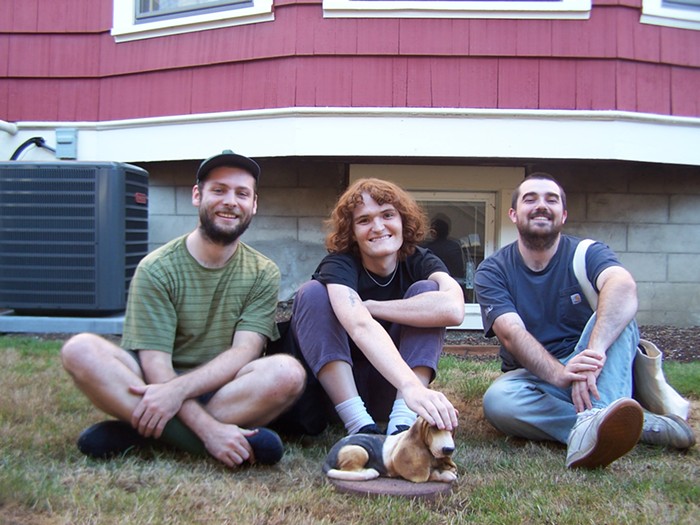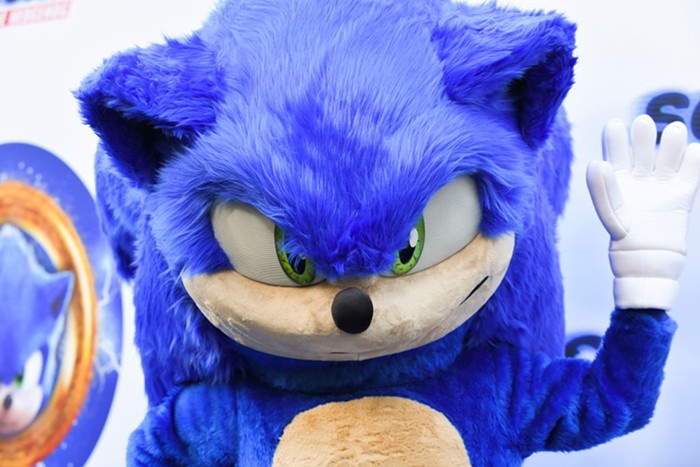Wed Oct 15
Ohm
On Wednesday, at the weekly Luv Jonz where he plays drums with his band, Reparations, David Parks will present a series of essays entitled "Why Portland Hates Young Black People," addressing the economic and race issues that keep Portland hiphop marginalized and suppressed. It's an appropriate forum, considering last year the Luv Jonz was temporarily shut down because of a single incident of violence--the kind of fight that happens all the time at rock shows, but never gets them shut down.
What motivated you to talk about this?
I think a lot of people are in the dark about how certain people are shut out of economic opportunities. We can only point to the recent success of the Lifesavas, who've been around for 12-13 years, but weren't able to access clubs because of the "genre of hiphop." Because they were doing hiphop, they were put in a certain box. My whole point is to create a dialogue.
The OLCC would never call Lloyd Center and say, "Hey, don't sell those hiphop clothes. Foot Locker, you can't sell those hiphop shoes." But they're quick to call a club and tell them they can't have a particular type of music. To shut out hiphop is basically like telling blues people 30 years ago their music is bad, and we can't have it in this town. If you wanna open up a blues club, don't do it here. And we're what, 30 years into hiphop now?
We all shout about Kendra James, but in reality, I think that back when we were doing the Portland hiphop festivals [Poh-Hop], if the city had jumped on board and really worked with people, it would've had an overwhelming influence of inclusiveness for everyone in the city. I'm not saying it would keep someone from turning to drugs, but it might help someone feel like they belong to somethingÉ that the art forms we appreciate are included in the city's mindset.
How much do you think this has to do with Portland's unspoken "don't-ask-don't-tell" race-relations policy?
A lot. A friend of mine from Philadelphia said to me, "What Atlanta is for young black people, Portland is for young white people." [For young white people], there's more access and availability to events. Back in the day, I was one of the first people putting on hiphop shows at Satyricon, cause I'd been in alternative rock bands and the same PA you use for a rock show, you can use for a hiphop show. It's not the OLCC's job to know. I think it's the job of the more upper echelon creative personalities in this town to let them know [fostering Portland hiphop] is important.
So you're calling for a citywide dialogue?
That's part of it, but a lot of it is just my perception of how we got to this point. A lot of it has to do with Reagan-era hiphop history. Back then, there was this connection with rival gangs and Ice Cube and NWA that perpetuated this whole "bogeyman" myth. And now, if you're the OLCC guy that walks into the club and you see these people up there dropping "N" bombs and "MF," that scares the hell out of you. But people gotta understand, those are kids, and they're working through those things. It's about growth. Next year, you could listen to another record that completely enlightens you to something else.
Do you have specific ideas of what will help Portland's hiphop community?
I'm just making suggestions. Is this an economic issue? What's the solution? There's no other art form in this town that's being told to stop. I mean, in your magazine, I could pay for a spanking if I wanted. But I can't hear hiphop music the way I want to. If I decide I don't wanna hear some quasi-positive stuff, I really wanna hear some West Coast gangsta music, there's nowhere to go. There's no other art form in this town they're trying to regulate in this way.
I'm glad you're bringing this up.
I feel ridiculous even having to bring the issue up. But, at the same time, I'm watching my events get closed down. I'm watching opportunity shift away from me, and a lot of people.


















